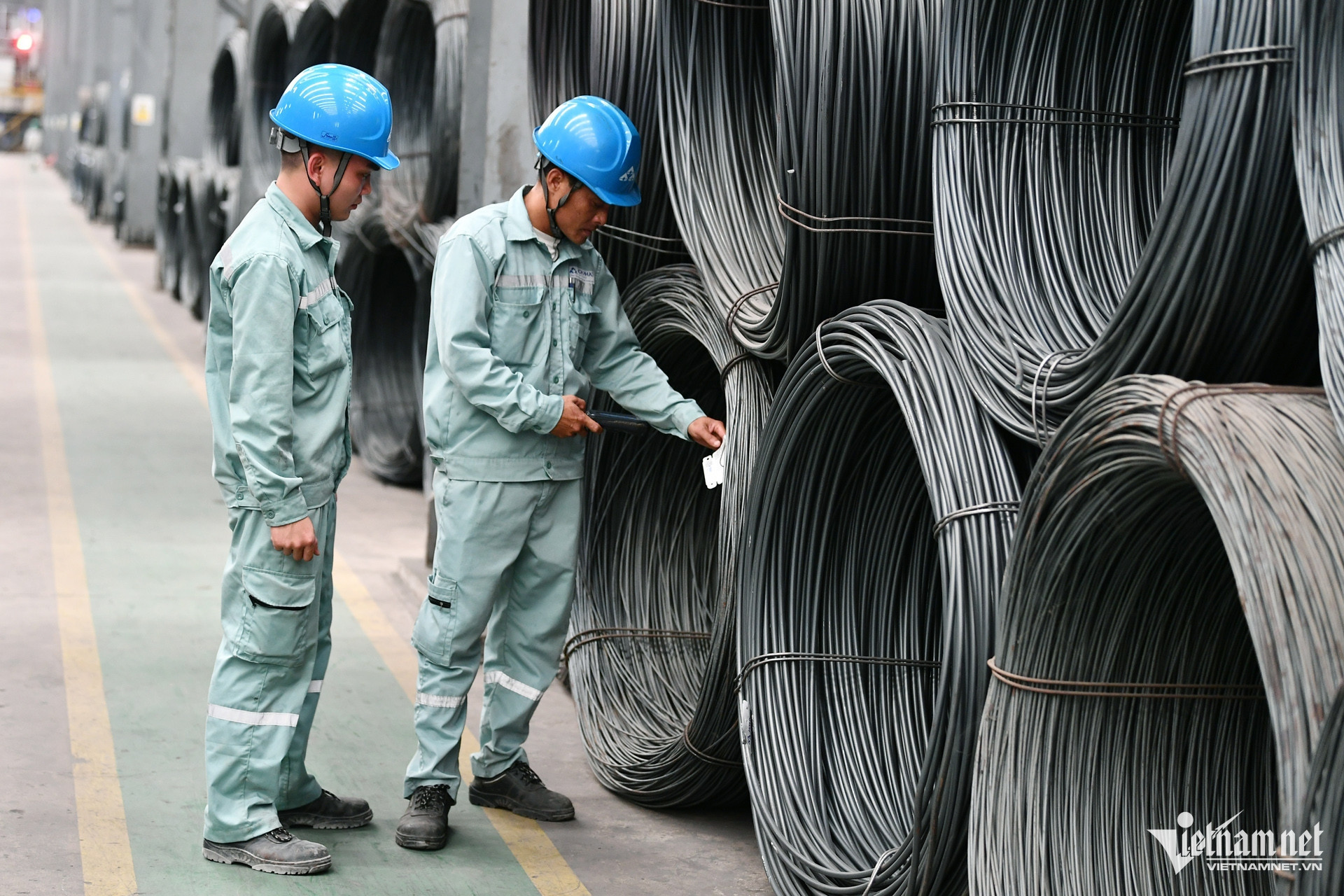Land, capital, and technology are the three key pillars in Vietnam’s strategy to develop the private sector into the country’s primary economic growth engine.

VietnamNet continues its coverage of economic reforms with insights from Nguyen Dinh Cung, former Director of the Central Institute for Economic Management, on the latest draft policy aimed at strengthening the private sector’s role in national development.
Vietnam is undertaking a regulatory revolution to eliminate bureaucratic obstacles, accelerate administrative reforms, and create groundbreaking conditions for private sector growth. The government plans to simplify investment procedures, particularly in construction.
Key administrative processes, including investment approval, environmental compliance, fire safety, and water management, will be streamlined to eliminate unnecessary redundancies.
All procedures will be integrated into a single construction permit, with strict processing timelines. For projects in industrial parks, export processing zones, and economic zones, the process should take no more than one week. For all other investment projects, the maximum timeframe is set at four weeks.
Legal barriers related to conditional business sectors and market entry restrictions will also be reviewed and reformed. Excessive regulations limit competition, stifle innovation, and slow down private sector growth. Reducing these constraints is a priority.
The government is committed to digitizing administrative processes, incorporating artificial intelligence and big data to increase transparency, streamline bureaucracy, and create a world-class business environment.
The ultimate goal is to position Vietnam as a leading destination for investment in Southeast Asia.
Land, capital, and technology have been identified as the three fundamental pillars supporting the development of private enterprises. Vietnam is considering amendments to the Land Law to facilitate easier access to land for private investors.
Private enterprises will not be required to pay upfront land-use fees if they have already acquired land through private purchases. New industrial zones with affordable land rental rates will be established exclusively for private businesses, allowing them to expand investment projects.
At the same time, public perception of private enterprise must shift. The long-standing belief that large private corporations only succeed through land speculation must be addressed.
Instead, the government will highlight the positive contributions of private firms and showcase how they are diversifying investments into key national industries.

Mobilizing and encouraging large-scale enterprises to implement development strategies for key economic sectors such as the semiconductor industry, AI, and foundational industries. Photo: Hoang Ha
In addition to existing state support for small and medium-sized enterprises, Vietnam is exploring new multi-tiered investment funds. These funds, including angel investment funds, venture capital funds, and long-term investment vehicles, will be established at both national and local levels, incorporating public-private partnerships and crowdsourced funding models to support private enterprises.
To stimulate research and development within private businesses, the government will provide state funding through national, sectoral, and local technology funds to support technology acquisition and innovation initiatives led by private enterprises.
Private enterprises will be encouraged to co-finance research and development projects and collaborate with research institutions. Intellectual property rights over research outcomes will be granted to private businesses, allowing them to fully utilize innovations for commercial and industrial development.
Vietnam also aims to attract private investment into science and technology by creating an incentivized legal framework for establishing private research institutions, technology transfer centers, and innovation hubs.
Encouraging business formalization is another focus of the reform strategy. The government plans to transition informal household businesses into formal enterprises by eliminating the outdated tax quota system and promoting transparent and regulated business models. Supporting entrepreneurship and small and medium-sized enterprises is a key priority.
Startup ecosystems will be strengthened, with a particular focus on technology-driven enterprises and high-growth SMEs. Additionally, foreign direct investment regulations will mandate stronger supply chain integration between multinational corporations and local private enterprises.
Vietnam is mobilizing large-scale private enterprises to invest in key strategic industries, including semiconductors, artificial intelligence, and digital infrastructure. Private companies will also receive government support for overseas expansion, helping them compete regionally and globally.
Business leadership and management skills will be developed through executive training programs, focusing on corporate governance, digital transformation, international market integration, competitive strategies, business ethics, and corporate social responsibility.
Changing public perception and fostering a pro-business environment is an essential part of this transformation. A nationwide public awareness campaign will highlight the contributions of private enterprises to economic growth, employment generation, and national development.
Prominent business success stories from cities like Da Nang, Hai Phong, Quang Ninh, Phu Quoc, and Lao Cai will be showcased to inspire confidence in the private sector’s role in driving regional prosperity. Private enterprises will also be recognized through national awards and commendations, reinforcing their economic and social contributions.
By removing legal, financial, and technological barriers, Vietnam is positioning its private sector as a key economic pillar. With strong institutional reforms, investment incentives, and a shift in public perception, private businesses will have the resources and opportunities to expand domestically and internationally.
Vietnam’s economic future depends on its ability to foster an innovative, competitive, and resilient private sector -one that drives national growth, enhances global competitiveness, and contributes to long-term prosperity.
Tu Giang & Lan Anh